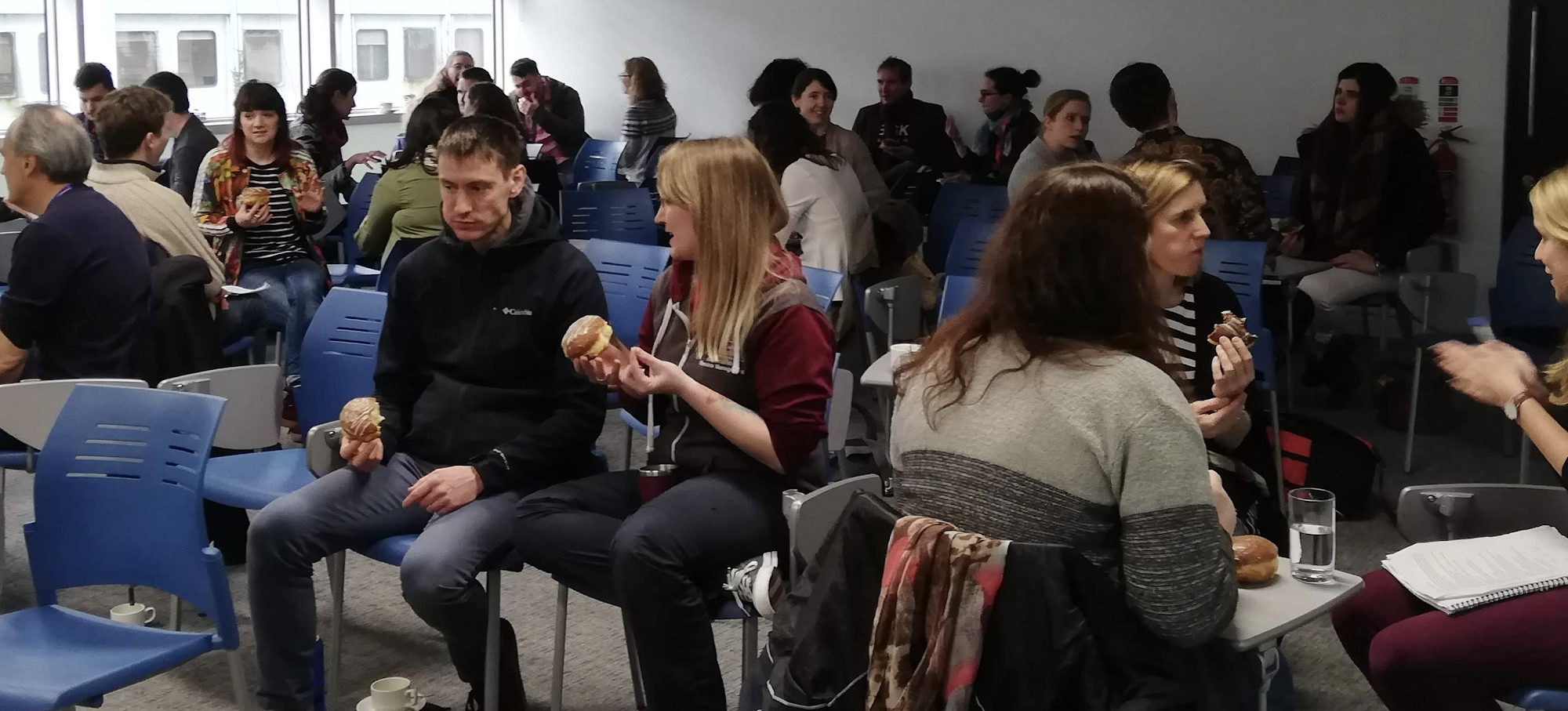Who doesn’t like donuts? Sugary and crispy on the outside, doughy and satisfying on the inside. And it turns out that eating a donut provides the perfect opportunity for some academic mentoring. The recent Ecology and Evolution Ireland conference put on a “Donuts with a Doctor” mentoring session that brought donut lovers together to exchange experiences on career opportunities, work-life balance, skills, mobility, and whatever else could be said between bites. Continue reading “Donuts with a Doctor – musings on mentoring”
There is no magic formula…(sorry!)
I recently attended a mentoring event that left me faintly frustrated and I was finding it hard to put into words exactly why. Eventually it came to me – at these events people always want the answer to the same question: what is the magic formula for succeeding* in academia? The problem is that there isn’t one, and I always feel really bad having to say that.
Sadly being smart is not enough. You need to work hard (not 24/7 or anything insane but you can’t slack off all the time and expect to succeed) and you need to be lucky. That luck can involve being in the right place at the right time, having the right skills, or knowing the right person. Of course people make their own luck, and being in the right place is not going to help you if you don’t also have the CV to be able to grab the opportunity. But still I would say that luck plays a fairly large part in most people’s careers. Of course you need publications, preferably in well-respected journals (Science and Nature papers would be a bonus!). But how many publications depends on your field, the post and, importantly, who you are competing with. The same applies to grants, presentations, teaching, outreach etc. This makes giving generic advice really difficult.
Another problem is that things are changing rapidly in the academic job market. Often we get advice from PIs who got their jobs in a completely different economic and academic climate. For example, I got a PhD with no papers, no research experience, and when I was half way through my MSc degree. These days this wouldn’t be enough for me to get PhD funding from the Irish Research Council. My point here is that you should take generic advice with a grain of salt, and also try to avoid getting annoyed with PIs for not giving you the “magic formula”. All we can do is tell you about our personal experiences.
What kinds of advice might be more useful (beyond the obvious advice to “write more good papers”)? First, before you’re looking for jobs take a senior academic in your field (preferably several) out for a coffee to show them your CV and ask them if there are any obvious gaps. This gives you the opportunity to fill those gaps before it becomes an issue. Second, when you start applying for jobs, try and get as much information about the job as possible from the advert but also ask people in the department if you can. This might save you time, for example if it turns out there is an internal candidate or if your CV is really not competitive, or give you an idea what the department is really looking for. Third, if you apply for jobs and get rejected, try and get feedback. This won’t always happen due to the volume of applications, and it won’t always be useful, but it’s worth a try. And don’t let rejections discourage you, keep on trying!
Good luck, and if you do find the magic formula please let us know!
*this assumes that getting a permanent job is equivalent to success!
Author
Natalie Cooper @nhcooper123
Photo credit



